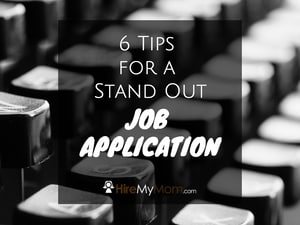From Dismissal to Digital: Your Guide to Working from Home
From Dismissal to Digital: Your Guide to Working from Home
It happens to everyone. One day you’re going through your daily routine at work, and the next you don’t have a job anymore. The workforce is constantly changing and for one reason or another, you may find yourself without a job one day. What do you do now?
Accepting and Dealing with the Initial Job Loss
The sting of job loss can be daunting, but don’t let it question your worth. It’s okay to take a breather and gather your thoughts. Embrace the upheaval as a chance to grow, employing coping mechanisms to manage stress, and reach out to your support network for strength. Acknowledge your emotions, but remember to approach the next steps with a positive attitude. It’s okay if you need to take a little break from the workforce as well. Use this time to rest, relax, and reset. Process the loss, take a break, and then dive back in when you are ready.
Assess Your Skills and Experience for Work from Home
To start your journey of getting back into the workforce, take a moment to inventory your skills and past experiences, asking yourself, “What could I bring to a work setting?” Reflect on your abilities in areas such as time management, self-discipline, use of communication tools, or specific technical skills relevant to your industry. Take a look at those skills and see what sort of positions they can be applied to — if you have always wanted to work from home, now is the time to try it! Remember, remote work often centers around digital roles, so roles like writing, design, marketing, or administrative roles could be a perfect fit. Leverage your unique skill set to find the perfect remote job for you.
Revising and Tailoring Your Application Materials for Remote Work
It’s time to fine-tune your resume for the virtual workplace. Focus on your expertise that makes you an effective remote worker. Think along the lines of time management, self-discipline, resourcefulness and adeptness at using communication tools. Be sure to spotlight any past remote work experiences, whether they were part-time or occasional. A resume tailored for remote work should underscore your capacity to succeed outside a traditional office environment. Your goal is to demonstrate that you’re equipped to excel in a remote setting.
Your cover letter is your opportunity to stand out from the crowd. For remote work applications, it’s key to stress your self-sufficiency, top-notch communication abilities, and exemplary time management skills. Use this space to illuminate relevant experiences and how they’ve prepared you for remote work. Show that you’re not just familiar with the company, but that you also resonate with its values and mission. A carefully crafted cover letter can open the door to your ideal remote role, so make every word count.
It’s okay if you have never worked in a remote position before! Be honest in your application materials and state this, then give examples of why you think you have the ability to work remotely. This can be examples of how you managed projects on your own without oversight from management or how you always have initiative for new projects that you feel would be best put to use in a remote setting. If you need a little help revising your application materials, you can schedule a one-on-one meeting with our HR experts who will review your materials and walk you through how to best present your unique job experience.
Preparing for Remote Job Interviews
Provide tangible instances of your ability to manage time effectively, communicate clearly, and maintain self-discipline in a virtual setting. Equip yourself with in-depth knowledge about the company and role you’re eyeing. This research will help you to anticipate interview questions and to come up with insightful queries of your own. Remember, your goal is to prove that you’re not just fit for the role, but you can thrive and succeed in a remote work environment.
Transitioning into a Full-Time Work-from-Home Role
Once you’ve successfully landed your remote job, adapting to full-time home-based work will be your next adventure. Designate a specific workspace to minimize distractions and maximize productivity. Implement a consistent routine to structure your day and keep you on track. Harness the power of technology to maintain open lines of communication with your team. Most importantly, create a clear boundary between your work and personal life. This is crucial in ensuring you maintain a healthy balance in this new phase of your career. Remember, your home is now your office, but it’s still your sanctuary too.




